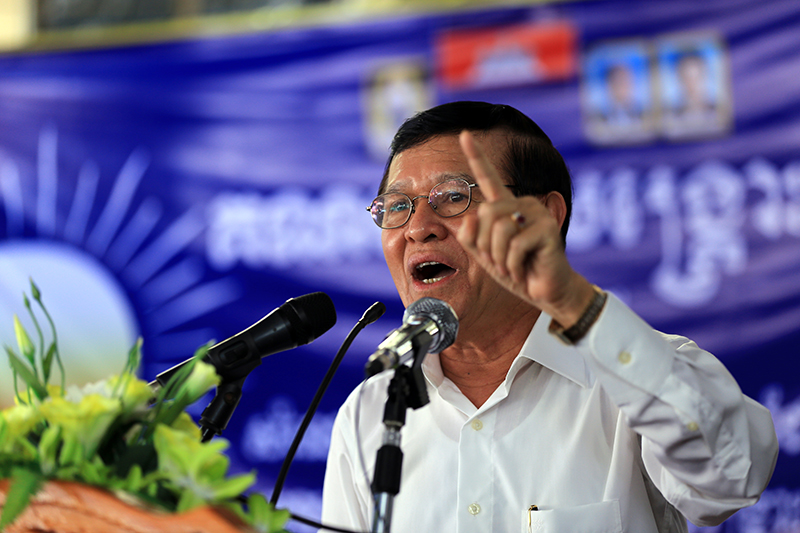The opposition party on Thursday delivered a letter to the Royal Palace asking King Norodom Sihamoni to refuse to sign controversial amendments to the Law on Political Parties targeting former CNRP President Sam Rainsy.
The letter, signed by 29 opposition lawmakers, said the amended law is “not in accordance with the principle of rule of law and runs opposite to the principle of liberal multiparty democracy that is ensured by the Constitution of the Kingdom of Cambodia.”

The law is “politically motivated, oppresses individual rights, breaks the nation and oppresses political parties in order to eliminate our own Khmer” and will cause the next “national election to be not free, correct, or fair.”
CNRP deputy president Mu Sochua, who signed the letter, said she was hopeful that the king will intervene to stop the proposal from “breaking the nation.”
“We will use all mechanisms that we have, especially when it affects national unity,” she said.
The royal palace could not be reached for comment. The CPP panned the request on Wednesday, saying the king was unlikely to favor the opposition and that the law strengthened democracy and the rule of law without explicitly targeting anyone.
The proposed amendments bar parties from collaborating with or promoting those convicted of crimes, or using their images in advertising, including the exiled Mr. Rainsy, who has lost several court cases observers say are politically motivated. They also add new rules around logos and party names.
The changes need only clear the CPP-controlled Constitutional Council before going to the king for his signature, or, in his absence, CPP stalwart and Senate President Say Chhum.
Duch Piseth, advocacy director at the Cambodian Center for Human Rights, noted the king could not veto the legislation, only ignore it. Only the Constitutional Council is empowered to return the proposal to legislators.
“But in general, I’ve seen that if there is some controversy or issue between both major parties in the Assembly, the king, he travels abroad and passes this responsibility to the acting head of state,” he said at a roundtable organized at the Royal Academy on Wednesday.



